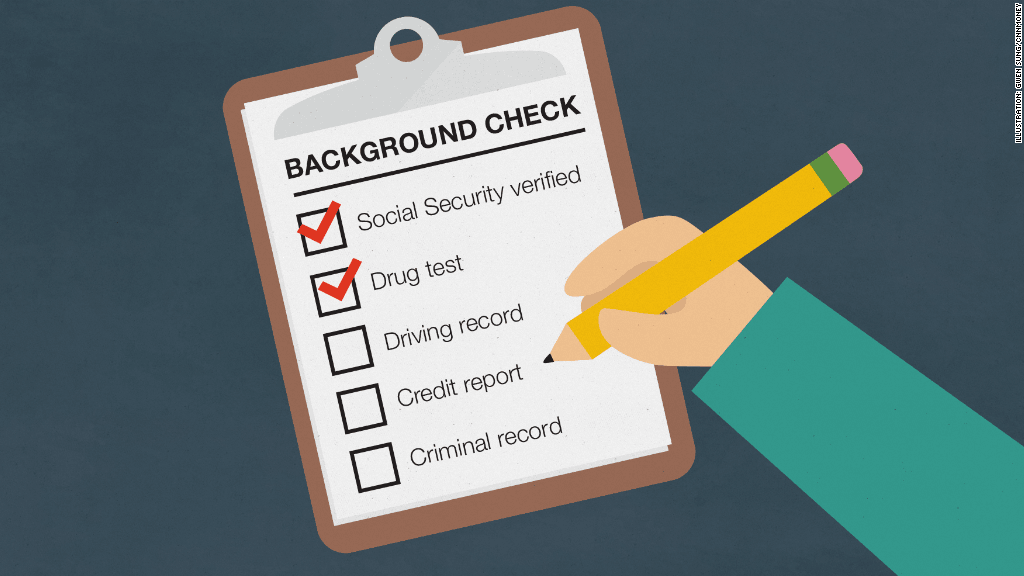Does your company have a background screening process in place? Do you sometimes wonder if it’s as efficient and effective as it should be? You’re not alone. Companies across the country have background screening procedures in place, but some just don’t quite hit the mark. So, let’s take a look at the top seven background screening mistakes being made today.
- Not Having a Background Screening Policy
The very first mistake you can make in business is not even having a background screening policy. Verifying the honesty of a potential employee is one aspect of checking into someone’s history, and it can mean the difference between hiring an employee who steals from you and an employee who makes your company money.
A simple screening can be as low as $15; however, it’s important to be diligent in your researching of the companies that are offering background screening, to ensure they are compliant with all the laws regarding background screens.
Each jurisdiction has a slightly different set of rules on a local level, so when you’re choosing the screening company you want to use, be advised to learn as much as you can about their specific practices.
- Not Getting the Candidate’s Permission
This is an absolutely essential part of the process. Doing a background check for employment requires permission from the candidate, as well as their information such as name, address, and social security number. There are a number of online options through which you can submit their information, and the turnaround time is shorter than mailing in a request.
Disclosure of background screenings is also a good way to go ahead and make sure that those applying are willing to submit to the screening. This way you have transparency from the beginning, and you are showing the boundaries of acceptable behavior up front.
Ready to order or have questions? DrugTestsInBulk.Com has a professional staff ready to answer your questions and to help you place your order today. Call us today at 866.461.7806. Ask us about our special pricing and how you can sign up to receive our newsletter and product promotions. Call Today!
This is also a way to save time and effort when someone begins the hiring process but fails a background screen. Since it is such a potential deal breaker, legally and otherwise, permission is always necessary.
- Avoiding Education Background Checks
Education is a key component to a successful employee. Sometimes people will lie on their resumes to get the job. In the day and age of digital technology, it is fairly simple to contact education institutions to confirm a candidate’s listed education experience.
Contacting an institution’s alumni program is the best way to get to the truth most expediently. If a person lies on their application, they will most likely lie to you, their employer, because they have proven to be willing to do so in the first place.
Be sure to cover all points of their education path, and if necessary, you can also ask for copies of their transcripts or diplomas. Providing proof of education can help to increase the level of trust you have in them as well.
- Not Verifying Temporary and Contract Workers
It is very important to check every employee in your company. Temporary workers and contractors who are not on full time payroll are still employees, and they can sometimes even pose more of a threat because they are not committed to the company business practices for the long-term.
Making sure that every worker has a clear background, especially if you are going to bring them into your sensitive system, is not something to skip. Background checks prevent theft, fraud, and protect your company’s reputation, too.
It is the responsibility of the company to be aware of the background of every employee even if they are only employed temporarily, so be sure to allot the proper resources to easily screen everyone. Small investments in your present procedures can prevent costly mistakes in your future.
- The Wrong Timing
Accurate records are important to find, and it is equally important to know who you are interviewing. Running a check at the beginning of the hiring process means that you will be more likely to reject them in advance if you find a discrepancy.
If you have a chance to meet the person, shake their hand, and look them in the eye, you get a feel for who they are now. Some people make mistakes and then learn and grow from them.
By giving people a chance to explain themselves and any potential red flags ahead of time, you can begin to trust them as you get to know each candidate a bit more personally. Through the interview process, you will be able to determine many things about their character.
Creating a contingency of acceptance for employment based upon the results is a great way to put off the request for the background check, yet saves you the difficulties in losing a new hire at the last minute.
- Mistaken Identity
Mistaken identity is more of a problem now with a larger population and a greater probability of exact name copies. When you submit a request for a background search, especially in a larger city, you may find multiple reports under the exact same name.
This can be a serious problem if the person’s report comes back with drug or traffic charges, when in fact their correct record is clean. It can cost them the job and tarnish their reputation, without the truth ever being exposed. So, it’s important to be forthcoming with findings to ensure proper identity.
- Limited Database Searches
A final huge mistake that can be made is choosing the wrong database(s) to research a potential candidate’s’ criminal history. We have a global job pool now, and therefore, thoroughly investigating someone’s full history may include running a background screening in another country.
Be sure to investigate all the legal aspects of running background screenings, especially when contacting other countries. Make sure you choose a database that will collect and report the most thorough records legally as well. Also, avoid using only social media sources to check on someone’s activities to get a read on his or her history. A person may be hiding something, and it is much better to prevent the high cost of resolving legal matters ahead of time.



